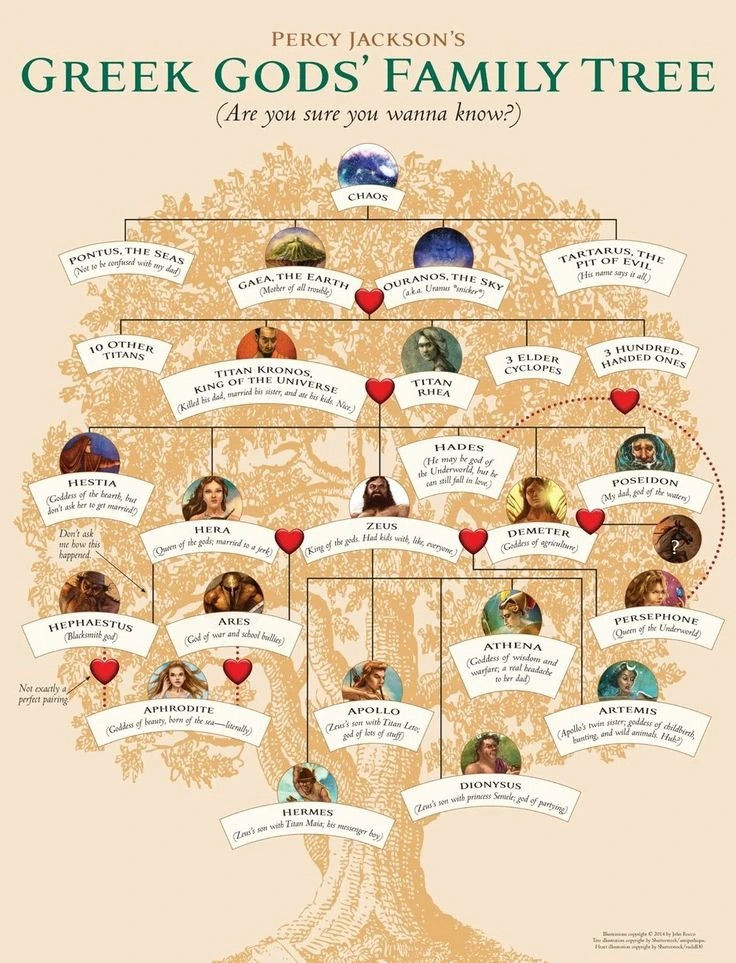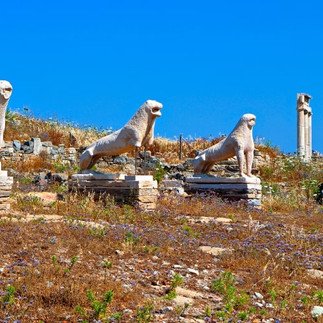Walking Among Ancient Olympic Gods
- muse7699
- Sep 6, 2025
- 3 min read

Zeus gained victory by overthrowing his own father, Cronus, who was the king of the Titans. He became the King of the Gods, married his sister Hera and moved to Mount Olympus with his siblings and children. Temples to the 12 Olympic Gods and Goddesses were erected all over Ancient Greece. It's very easy to travel to visit the ruins and walk among the gods.

Athens -Temple of Athena Nike sits atop the Acropolis in the city of Athens. It was finished around 420 BC. in the Ionic style. and stood for almost 2,000 years until it was dismantled by the occupying Turks of the Ottoman Empire in 1687 who used the materials to build a wall. After Greece won its independence in 1821 the Temple of Athena Nike and the other structures in the Acropolis were rebuilt.
Goddess of knowledge and wisdom and warfare
Family Tree -Fathered by Zeus with the Oceanid Metis, Athena is said to have emerged out of her father's head a fully-grown woman in full armor and ready for battle. Her symbols included the owl and the olive tree.

Delos - Reached only by ferry and sitting a few miles away from Mykonos is the Island of Delos, the birthplace of Apollo and Artemis. The birth of the twins instantly turned Delos into a sacred island, and no mortal was allowed to be born or live or die on the island. Apollo’s cult at Delos was the most influential religious cult in the Aegean. It became a spiritual center and the home of sacred ceremonies and religious practices that were part of the infamous Delos Mysteries. Statues of the winged God Hermes, the messenger were also unearthed on the island. It was brutally hot the day I visited the island. With no shade and sweat pouring down my face, I stood in awe of the ruins. The remains welcome you the moment you step foot on the island. I walked through the agora, theatre, bathhouses and up to the temple, with a sense of spiritual energy pulsing through my body. The ruins are vast and archeologists from universities in Athens continue to restore them. Delos Island - A powerful spiritual centre of the ancient world
Apollo - God of the sun, prophecy and philosophy,
Artemis - Goddess of hunting, archery, purity and virginity,
Family tree - Children of Zeus and Leto

Naxos - Temple of Demeter was built in 530-520 out of Naxian marble. It is considered one of the earliest Ionic temples predating the Acropolis. Apollo and Demeter were worshipped here, along with Demeter’s daughter, Persephone. While staying on Naxos, I did a tour of the island which included a visit to the restored temple as well as a stop at the ruins of the sanctuary of Dionysus. Portara, and the ruins of the unfinished temple to the God Apollo are also located on Naxos.


Demeter - Goddess of harvest, grain and fertility
Family tree - Demeter was the lover of both Zeus and Poseidon, and the middle daughter born to Cronus and Rhea
Dionysus - God of wine, theater and fertility
Family tree - Fathered by Zeus and the mortal Semele

Delphi - Ancient Greece was scattered with religious sites and sanctuaries, some of which were home to oracles aka fortunetellers. Each oracle was associated with a particular deity. However, the most important oracle throughout Ancient Greece was the Oracle of Delphi. Here the prophesies and wisdom of the God Apollo were conveyed by the mysterious priestesses, the Pythia. at the Temple of Apollo on Mount Parnassus. The oracle was a real woman carefully selected by the priests of the sanctuary. When one Pythia died, another one took her place as the high priestess. Apollo founded his sanctuary when he killed the dragon Python. People would visit Delphi, bringing offerings, in hopes of receiving messages directly from Apollo. Little is known about the early history of Delphi. Some say it is the location of the tomb of Dionysus. Others say it was the home of the earth mother Gaia. Regardless of its origin, Delphis' a sense of spiritual power pervades every step through the temples, and marketplaces. The Oracle of Delphi.
The Delphic Oracle said that I was the wisest of all the Greeks. It is because I alone of all the Greeks know that I know nothing - Socrates





























Comments